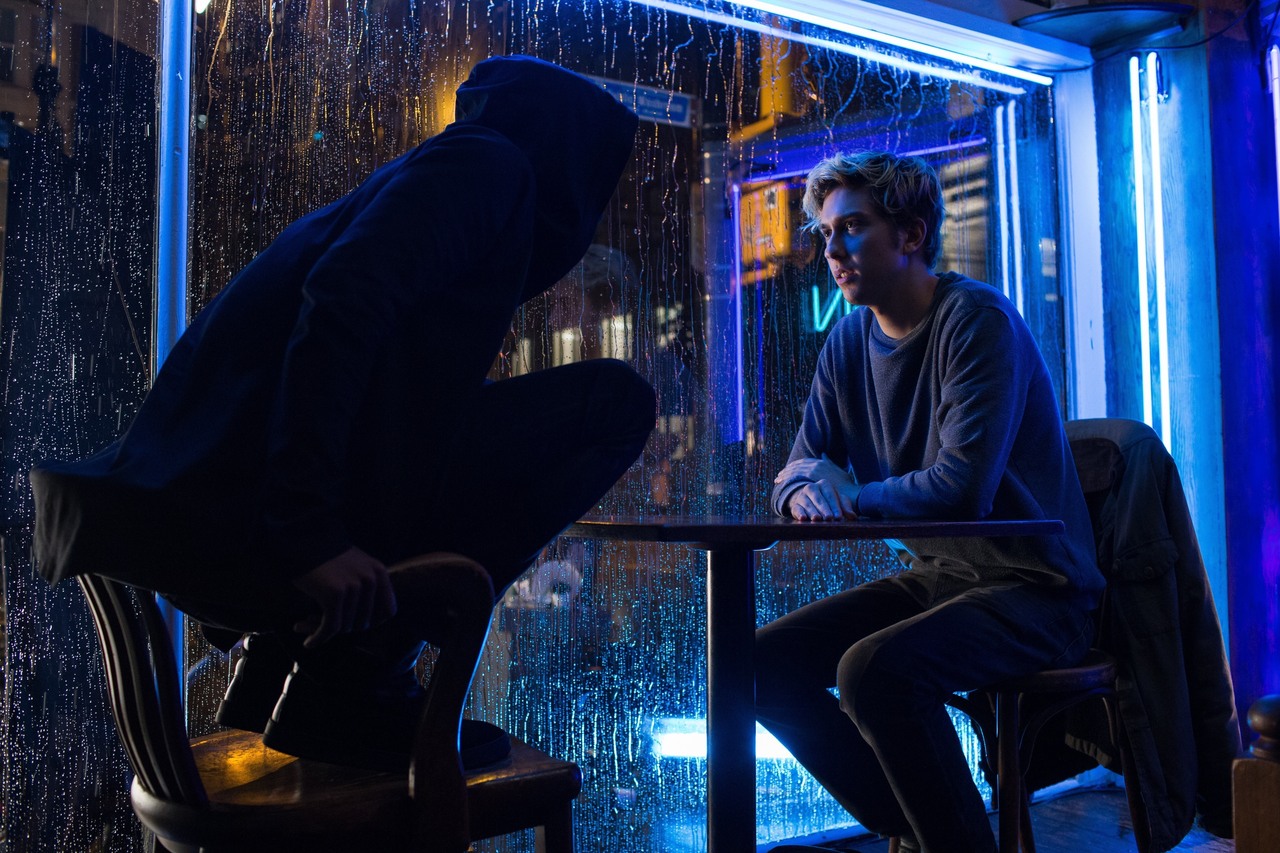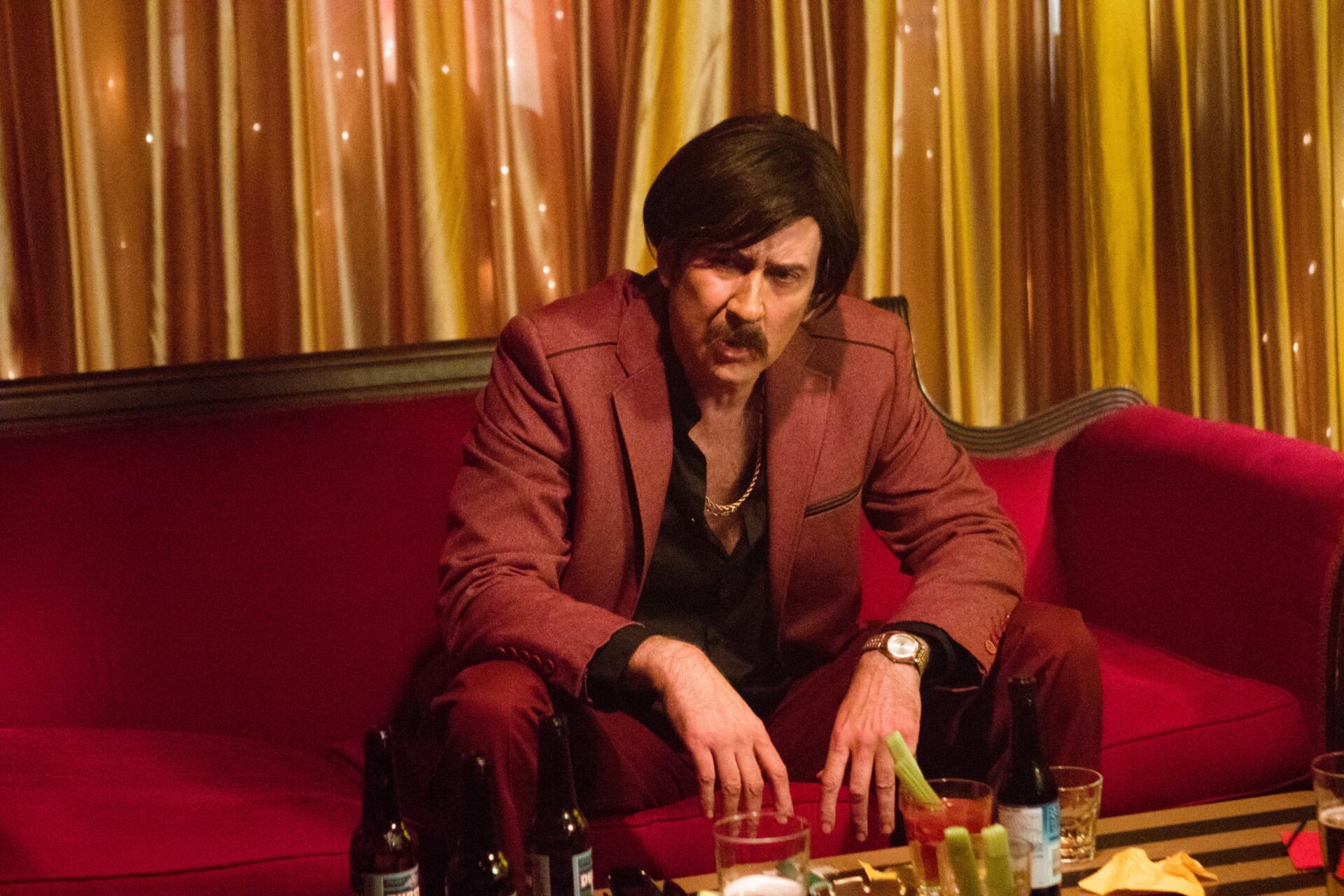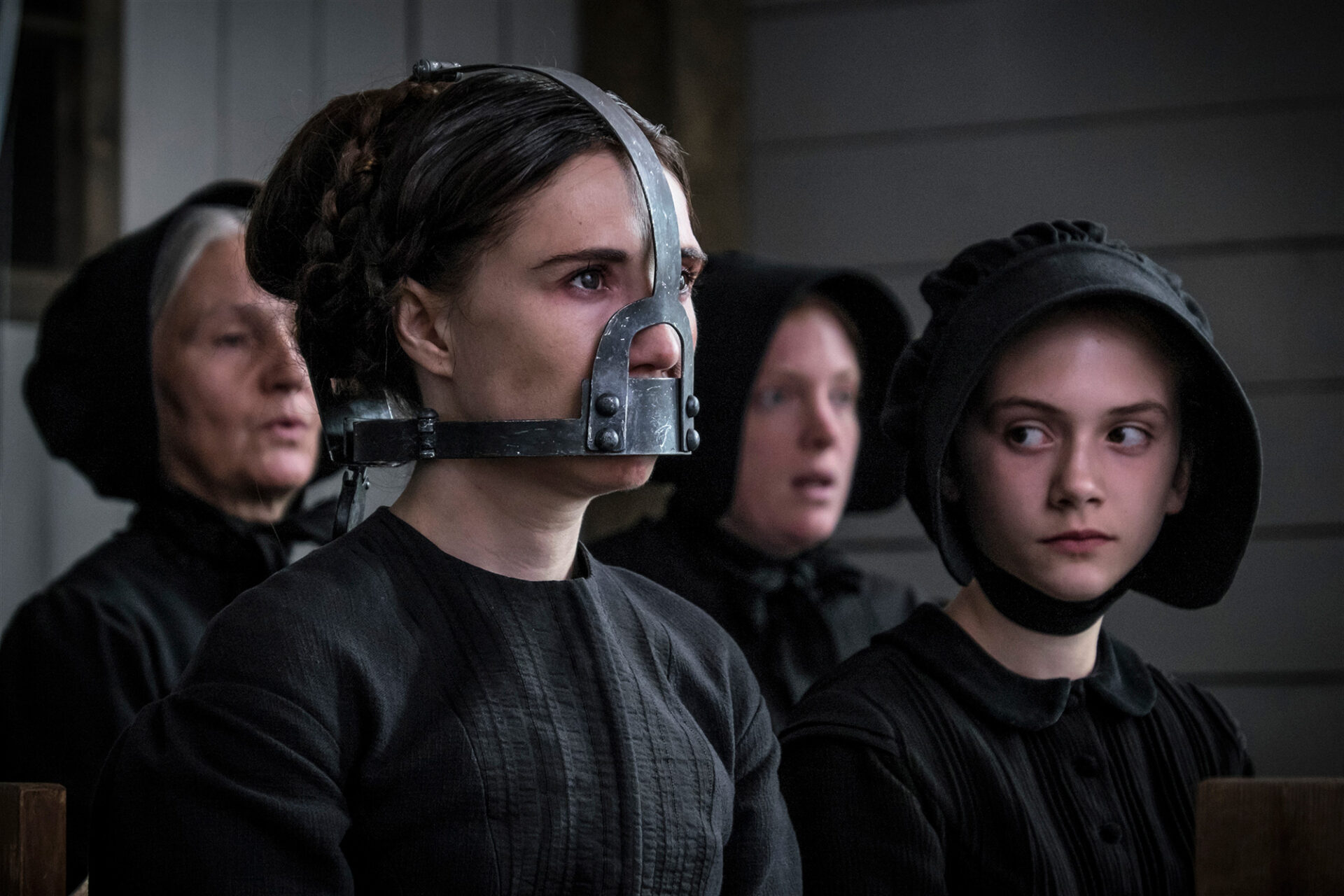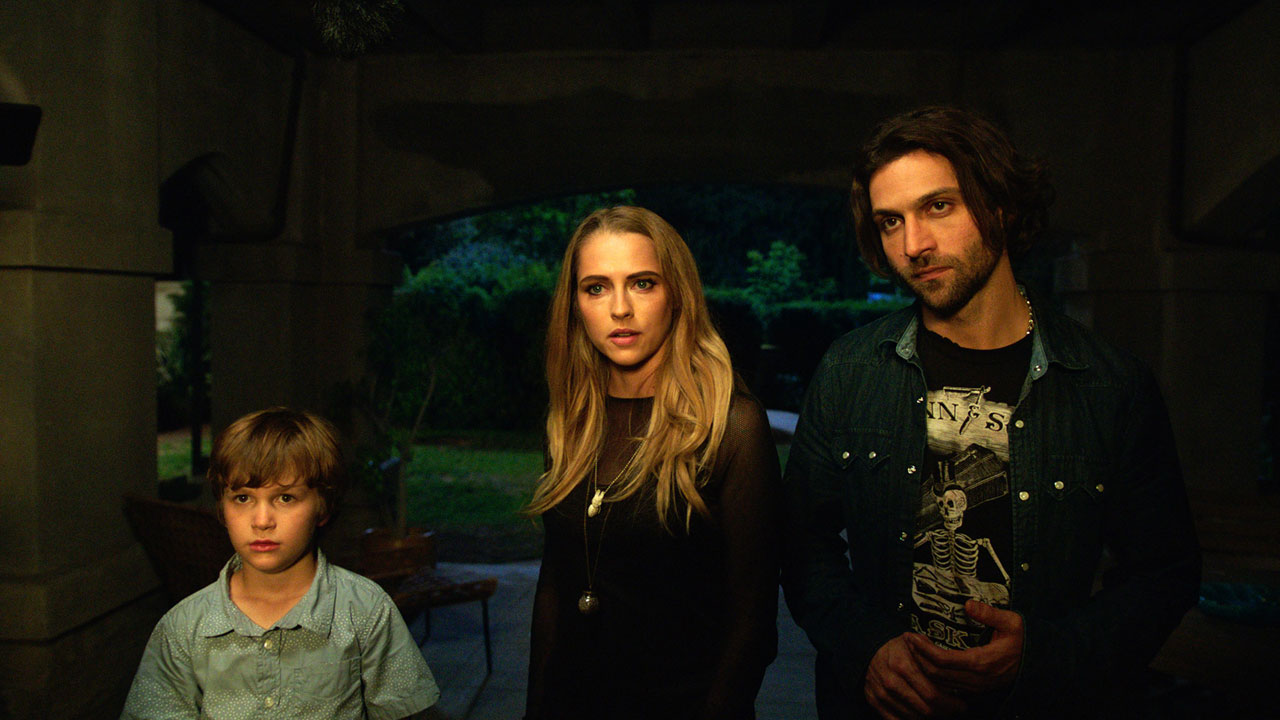In terms of anime and manga ripe for live action adaptation, Death Note is about as ideal a candidate as they come. Rather than seeding itself in fantastical science fiction or fantasy settings that might be too costly to render for live action on a budget targeted at a niche audience, Death Note is more akin to noir mystery with a few supernatural conceits that wouldn’t be effects-driven or terribly costly to render in a realistic manner. Rather than relying on its supernatural set-up as a crutch, it instead acts as the basis for a series founded on intelligent double-plays and cat-and-mouse antics, which is the sort of character drama that translates well to real life humans. And it did, in the 2006 Japanese film adaptation and its sequel The Last Name. However, Adam Wingard’s American adaptation does not hold nearly the same sway, particularly because it abandons those noir elements in favor of something more base and, frankly, stupid.
Wingard’s version offers the same basic set-up as its inspiration: Light (Nat Wolff) witnesses a notebook falling from the sky, and upon picking it up discovers a host of rules written within the front cover. A death god named Ryuk (Willem Dafoe) appears and helpfully explains that a person’s name can be written in the notebook with a cause of death, and that person will then die as a result. With this newfound power, Light fashions a persona for himself as Kira, a world-renowned vigilante in the shadows who murders criminals. This draws the attention of the detective known only as L (Lakeith Stanfield), who investigates Kira and is always dangerously close to discovering and proving Light’s true identity.
However, Wingard deviates heavily from the source material both in terms of tone and effective execution. Wolff’s version of Light is not a calculated killer with a god complex, but is instead a perpetual whiny victim of his inability to predict the consequences of his actions. He almost immediately shares his newfound power with a girl at school, Mia (Margaret Qualley), whose sociopathic tendencies lure Light into greater and greater trouble, which not only robs the character of his cunning but also his agency, reducing what was previously a character study of the lines between justice and villainy into a banal morality play wherein Light is strung along by a never-ending series of bad decisions that aren’t entirely his own. The only characterization that remains remotely faithful is that of Stanfield’s L, which is just as eccentric and quirky as its inspiration, if only a bit less competent to not immediately see through this version of Light’s flimsy Kira façade.
But even if we judge Death Note on its own virtues instead of as an adaptation, it falls pathetically flat. There is never any tension between Light’s and L’s machinations, and the choice to portray Light as sympathetic character from the death of his mother is woefully misguided. Dafoe is a great casting choice for Ryuk, but in practice the character looks like a lumpy, immobile muppet with lightbulbs for eyes, which is a complete disservice to the more horrific angle Wingard seems to have wanted to give the death god. The rules under which the Death Note itself operates can’t manage to remain consistent over the course of the film, and new rules and abilities appear as the script mandates them. These sometimes come from the book itself and sometimes from Ryuk’s mouth, but these constraints and capacities always arrive with a sense of convenience. This is something that could have been rectified with a few revisions to the screenplay, but that does not seem to have been a priority as the film’s final moments don’t so much conclude as they do arbitrarily end, teasing a sequel that is neither earned nor deserved.
This writer is in no way opposed to an American adaptation of Death Note, though it is absolutely striking that Asian American talent was not afforded the opportunity to play the lead roles in the adaptation of a Japanese property. However, the best way to make such an adaptation would, in all likelihood, be to faithfully adapt the source material rather than invent an entirely new vision from a narrative structure for which that vision wasn’t designed. Adam Wingard seems intent on turning a mystery thriller into a horror movie, to translate the story of a well-intentioned teenager’s corruptibility into a rote tale of being careful what one wishes for. In the end, all he accomplishes is undermining the fanbase who wanted this film and a lackluster and forgettable display for everyone else. Death Note seems to have been made with nobody in mind but Adam Wingard. That should be enough cause for anyone to stay away.













